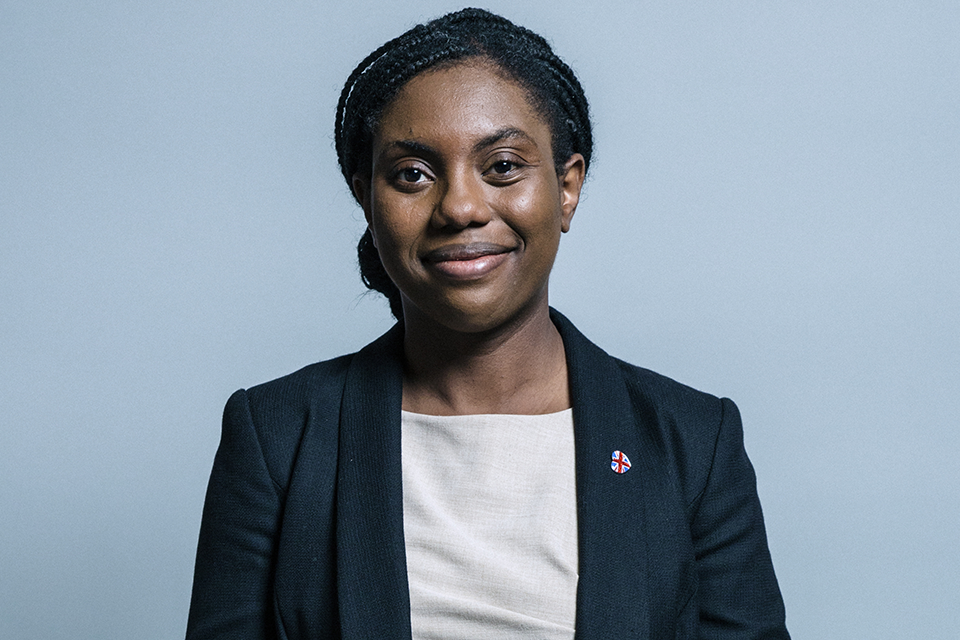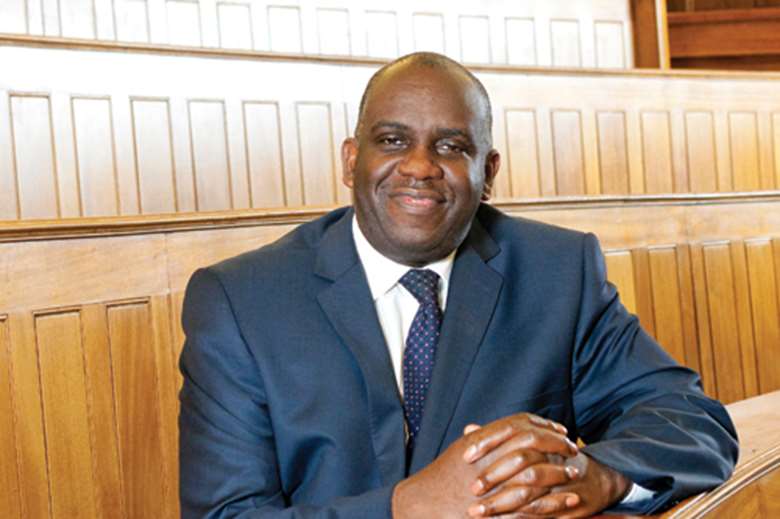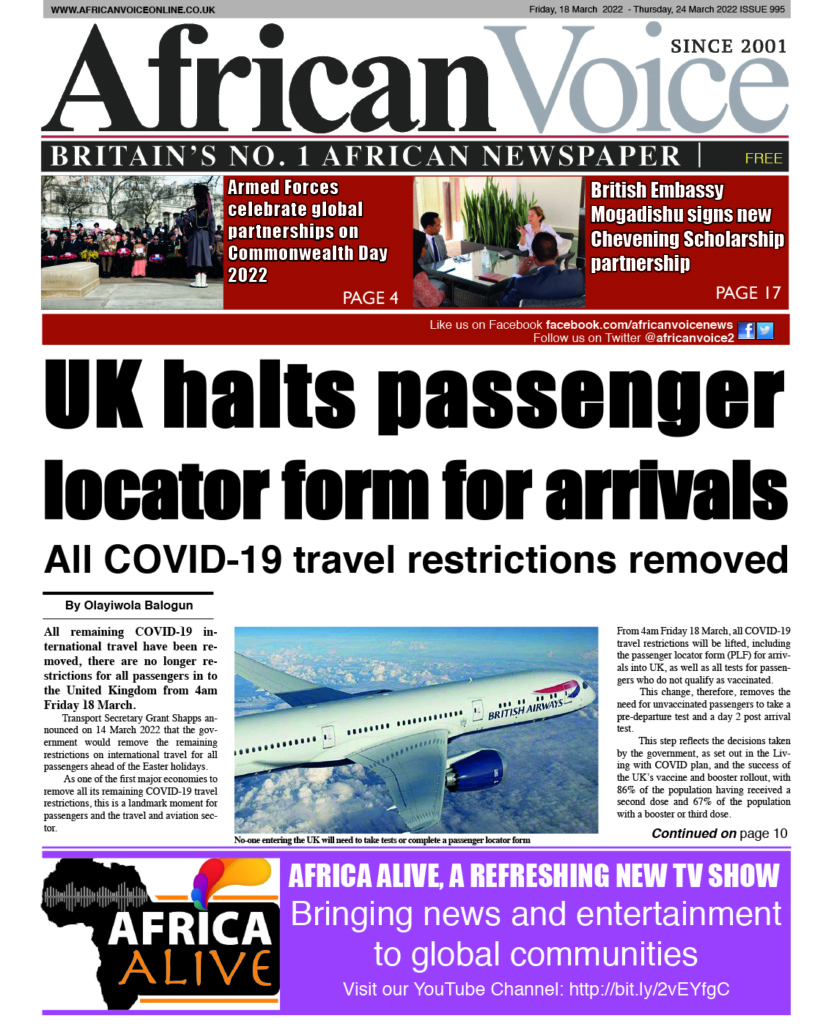
The Inclusive Britain strategy sets out 70 actions to tackle racial disparities, boost opportunity and promote fairness.
The Government on 17 March published its landmark inclusive Britain strategy to tackle racial and ethnic disparities and ensure fairness in the UK. This strategy builds on the Levelling Up White Paper which provides the blueprint for spreading opportunity more equally across the country.
Inclusive Britain was developed in response to the Commission on Race and Ethnic Disparities’ groundbreaking independent report which made 24 recommendations to tackle ethnic disparities. Inclusive Britain addresses every single one of these recommendations and goes further, setting out a detailed Action Plan to build a fairer and more inclusive society in the long-term.
Minister of State for Equalities Kemi Badenoch said: “The Inclusive Britain Action Plan sets out how we are going to tackle the racial and ethnic disparities that persist in the UK. We have laid out more than 70 concrete actions which will practically improve people’s lives. I strongly believe that Britain is the fairest and most open-minded country in the world, but there is more we can do to foster inclusion and enable everyone to reach their full potential.
“We are building trust through improving police scrutiny, promoting fairness in the workplace with new evidence-based resources that work, tackling serious youth violence which disproportionately affects certain communities, and fostering inclusion by designing a new Model History Curriculum telling the story of the making of modern Britain.
“The causes behind racial disparities are complex and often misunderstood. Our new strategy is about action, not rhetoric and will help create a country where a person’s race, social or ethnic background is no barrier to achieving their ambitions.”
Chair of the Commission for Race and Ethnic Disparities Tony Sewell said: “When the Commission began its work in the wake of the Black Lives Matter movement, we set out to examine the evidence and root causes for the disparities faced particularly by ethnic minorities and offer solutions to the Government to address them. The Government’s response, Inclusive Britain, does just that.
“This is a major step towards a fairer, more open and more inclusive society and, importantly, focuses on the practical actions that will improve people’s lives. We all should throw our weight behind this strategy so we can build a better society for all.”
Secretary of State for Levelling Up, Housing and Communities Michael Gove said: “Central to Levelling Up is equality – giving everyone the same access to a great education, a well-paid job and a good standard of living – regardless of their background.
“The Inclusive Britain Action Plan is fundamental to our ambitions, helping us tackle the root-causes of racial disparities and ensure equality of opportunity for all.”
The Inclusive Britain Action Plan sets out 70 practical actions to tackle the negative disparities that persist in our society under three key themes identified by the commission – Building Trust, Promoting Fairness, and Creating Agency – as well as a number of measures that go beyond the Commission’s recommendations. These include:
- Establishing a diverse panel of historians to develop a new knowledge-rich Model History Curriculum by 2024 to support high-quality teaching of our complex past;
- Working with a new panel of academics and business people to promote fairness in the workplace;
- Creating a new Office for Health Improvement and Disparities which is now working to improve health for everyone – accepting a key Commission recommendation;
- Developing a new, national framework for how the use of police powers, such as stop and search, are scrutinised at a local level in order to enhance trust and strengthen relations between police forces and the communities they serve;
- Piloting an automatic ‘opt-in’ to help ethnic minorities and others receive the legal advice they need when in police custody;
- Issuing guidance to employers on how to measure and report on differences in ethnicity pay so businesses can identify and address disparities;
- Publishing a new White Paper on tackling health disparities to ensure we have a plan in place to help everyone live longer, healthier and happier lives;
- Setting out our plan for boosting literacy and numeracy standards for the most disadvantaged pupils in our forthcoming schools white paper;
- Developing regulatory standards and guidance to address potential racial bias in AI so that everyone is able to benefit from the new AI economy;
- Deploying a new in-work support offer to every Jobcentre from April 2022 with 37 new specialist Progression Champions to support working claimants to climb the career ladder, tackling ethnic pay disparities;
- Working with industry to collect data on ethnicity of business owners applying for finance, plus a new HSBC scheme to support more ethnic minorities to become entrepreneurs;
- Improving adoption matching for children of ethnic minority backgrounds with a new approach to data sharing and collection, and a Children’s Commissioner led review into support for families;
- Empowering more grassroots, ethnic minority-led and specialist, voluntary or community sector organisations to provide rehabilitative services.
- Reforming public sector training on diversity and inclusion to ensure it is more evidence-based, impartial and inclusive;
- Preventing young people entering a cycle of crime by using more out of court disposals to deal with first time drug users and therefore freeing up more police time to pursue criminal gangs supplying drugs;
- Introducing our groundbreaking Online Safety Bill to clamp down on abhorrent racist abuse online.
Inclusive Britain is a rallying cry for the rest of the public sector – as well as business, charities, or individuals, to work towards achieving a society which is truly equal. The Government has already delivered on a number of the pledges included in the Inclusive Britain Action Plan, including creating the Office for Health Improvement and Disparities and trialling schemes to divert young people away from the criminal justice system.
In her presentation to the Parliament by the Minister of State for Equalities Kemi Badenoch MP said, “If there is one thing at the heart of this government’s agenda, it’s that anyone in this country should be able to achieve anything, no matter where they live or come from. As a black woman, a first-generation immigrant and the Minister for Equalities, I passionately believe in this idea too. It is my lived experience.
I also know, however, that not everyone in this country has had this experience.
The events of summer 2020 showed that many people believe certain systems are flawed or actively rigged against them – be it in the workplace, in education, or the criminal justice system.
Whilst there have been many advances and worthwhile initiatives led by campaigners and people drawing attention to disparities and injustice, there is clearly a need for a more systemic approach on the part of government which is informed by a coherent overall analysis and philosophy.
Recognising this, the Prime Minister asked Dr Tony Sewell to chair a new Commission on Race and Ethnic Disparities to scrutinise these issues thoroughly and objectively. The panel was made up of 9 others drawn from a variety of fields, from education and economics to medicine and policing. With one exception, all were from ethnic minority backgrounds. Last year the Commission published a significant report – one that delved beneath the surface of the various disparities that persist across society, and took a detailed look at how they have evolved over time.
I want to thank each of the Commissioners for their dedication and for giving up their time to examine forensically an issue that matters deeply to people in the UK.
The report delivered a compelling message: as a country we have made huge progress, but we can go further.
In reaching its conclusions, the panel sought to unpick properly other numerous factors behind disparities, including socio-economic background, educational failure and family breakdown.
Some of the report’s conclusions were relatively uncontroversial. Others challenged the lazy consensus. It lived up to the maxim of the author and economist Thomas Sowell that ‘when you want to help people, you tell them the truth…When you want to help yourself, you tell them what they want to hear.’ The evidence is free from politicisation or distortion, with findings presented in an unvarnished fashion.
The panel found that racism does still exist in some areas and does still require action to overcome it, but the panel also found many minority groups have achieved successes that have gone unreported or unacknowledged, and far from the nature of our society and institutions constituting a bar to success, they are more often than not an enabler of opportunity.
Of course, there is more to do to overcome barriers to opportunity, but that applies beyond ethnic minority groups, as the Commission found a huge proportion of white people from deprived backgrounds continue to be left behind by society.

As Dr Sewell said in his report: “Put simply, we no longer see a Britain where the system is deliberately rigged against ethnic minorities. The impediments and disparities do exist, they are varied, and ironically very few of them are directly to do with racism.”
‘Inclusive Britain’ sets out a raft of measures that translate the findings from the Commission’s report into concrete action. In doing so, we’ve considered and responded to each of the report’s 24 recommendations – in some cases going even further than the report envisaged. Inclusive Britain is a comprehensive plan that details 74 actions right across government, which together will put us on a course towards a more inclusive and integrated society.
We do not agree with those who think that lack of opportunity should be seen solely through the prism of ethnic minority disadvantage. We do not believe that any group is less intrinsically capable than any other – ability is spread across the population. But opportunity is not.
Therefore, every action in the plan is crafted to deliver on our unwavering commitment to ensure that everyone in our society – no matter their background, gender, sexuality, creed or colour – has the opportunity to go as far in life as their ambition will take them.
Much of this comes back to the government’s defining mission: levelling up. We’re determined to breathe new life into areas across the country that have felt forgotten by Westminster. Better schools and colleges, better job opportunities, better health outcomes all have a role to play. Only by taking the long-term view can we build people’s trust in the institutions that are central to public life.
We’re already one of the fairest countries in the world. But we continue to strive to go even further to give people the best chance of success in life. Inclusive Britain will take us that step closer.”
Kindly follow us on twitter:@AfricanVoice2









